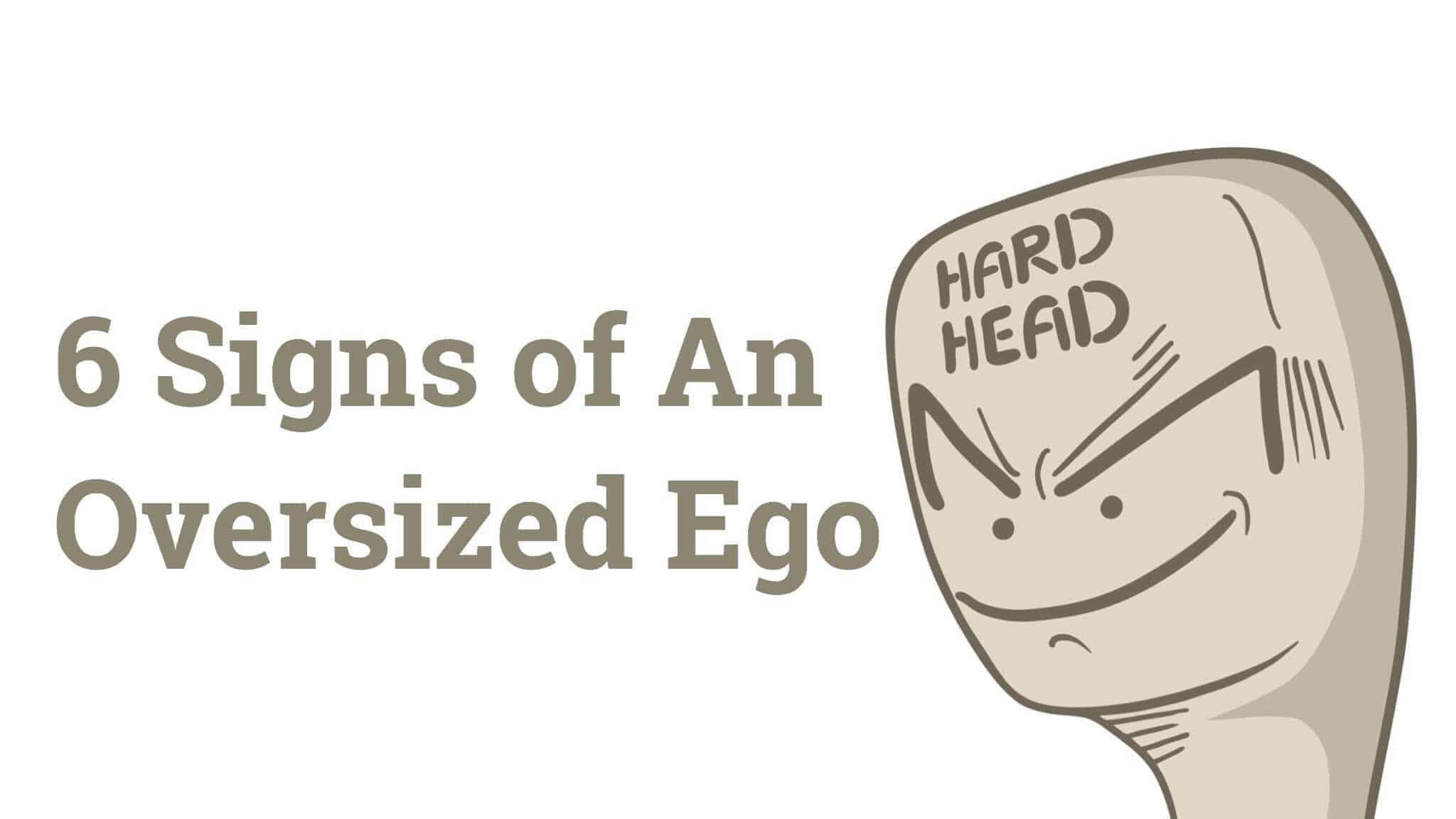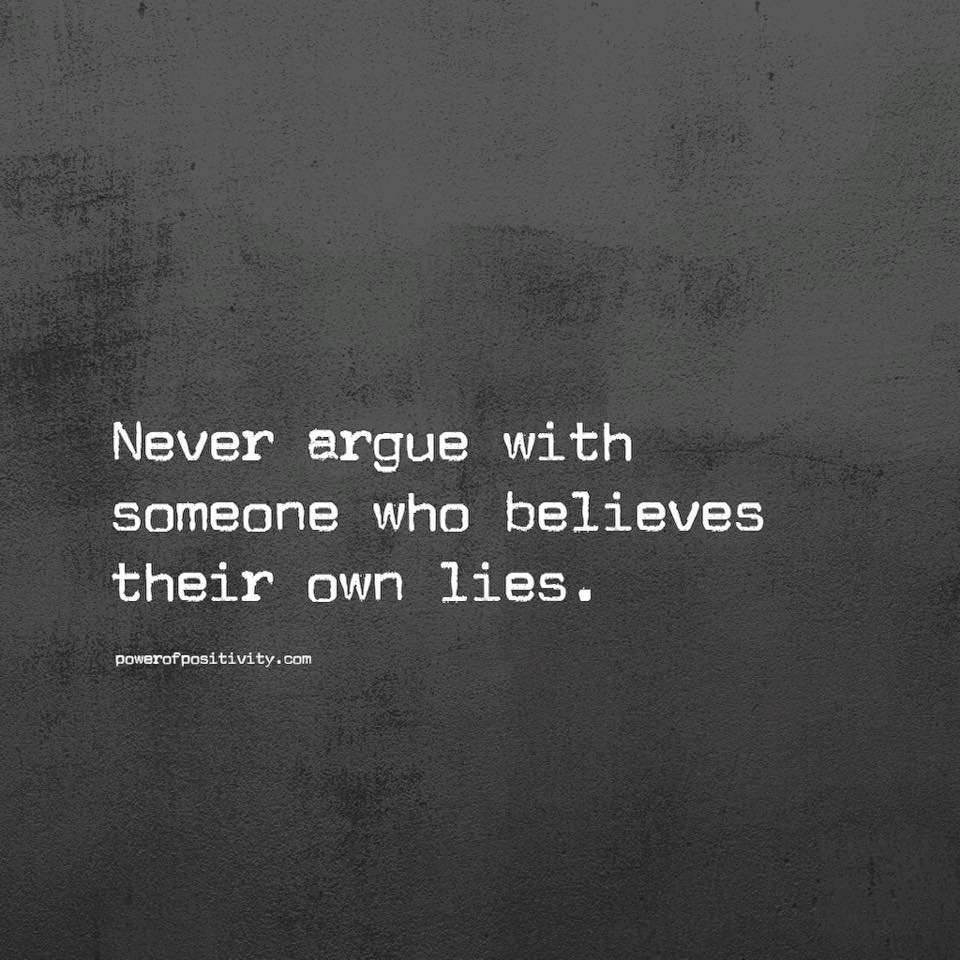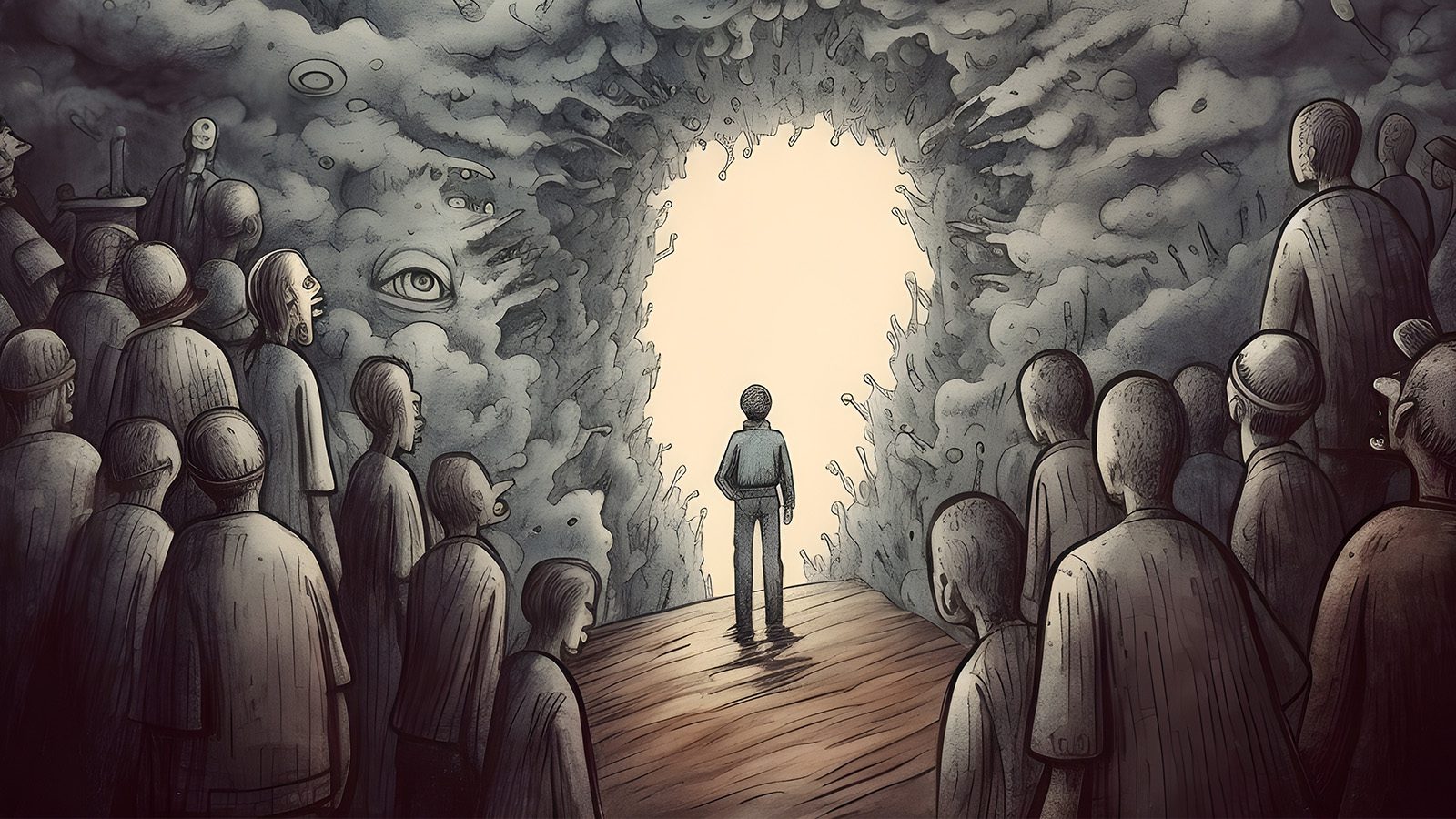We all know at least one person who acts like they are the best since sliced bread. Like they are perfect, flawless, and never wrong. And that doesn’t mean they are confident or self-assured. It usually means that they’re a rude and self-absorbed individual. Being sure and having faith in your abilities is a great trait. But having a big ego is something entirely different. It means you refuse to see what you could improve to become a better person.
Or you don’t have the incentive to improve because you already think you’re the most extraordinary person alive. The problem with egotistical people is that they never think about others. They don’t care who they have to step over as long as they come out on top. They would forsake their friends and family to reach advantages in life. That advantage is often monetary, or even fame and image. This is a person you don’t want to have in your life. They are unreliable, and frankly, they aren’t an asset for you.
They aren’t good friends or partners, and they will probably get on your nerves. If you are the one that has an inflated ego, that’s also an issue. That’s not to say that a healthy dose of confidence can’t help. Of course, it helps, as it doesn’t allow others to trample you. But being overly egotistical is not desirable, as it doesn’t benefit anyone, not even you. So, if you want to spot an oversized ego, what are some signs you need to look out for?
The Difference Between Confidence and Ego
At first glance, these two concepts might seem interchangeable. After all, being confident means having a big ego, right? Well, that’s not the case. There is a big difference between the two concepts. More specifically, these traits don’t stem from the same mindsets.
Confidence is utterly separate from self-interest. You can be the most selfless person alive and still be confident. That’s because confidence means having faith in yourself and your abilities. Confidence is all about how you see yourself. When you learn to accept who you are, with all your imperfections, that’s when you become confident. But confidence also means being aware of what you can do to improve yourself.
A confident person is not afraid to admit that they still have a lot to learn. They even take pride in the fact that they are constantly bettering themselves. But only good people are ever truly confident. And that’s because they know who they are, and they know they are kind and selfless. And that’s the type of person you can truly have faith in.
You might think that’s incorrect. You might even think you know bad people who are confident. Well, those people aren’t really confident. The term that would best describe them is egotistical. Having a big ego can look very similar to confidence. But the main difference is that egotistical people act out of self-interest. They want to look good and to seem like they are in the right. They don’t actually care if they are doing the right thing, as long as that’s how it seems.
This behavior is also linked with the need to seek validation and approval. That’s the main reason why your actions won’t be genuine. They will just be for show and because you want others to know just how “amazing” you are.
6 Signs of an Oversized Ego
Do you see these behaviors in yourself or someone you love?
1. They Always Think They Are Right
People who suffer from an inflated ego always need to be correct. They aren’t interested in learning new things or even having a discussion. They are usually just interested in showing off. Furthermore, they have the desire always to be listened to. They think being wrong is a weakness and will make them seem less than they are.
Because they are so afraid of being viewed negatively, they will always act like they know everything. They need to be listened to and to be admired. That’s not because they want to teach others. In fact, if no one learns a thing from them, they won’t care at all. Teaching others is something that selfless people do.
But that’s not what an egotistical person wants. They desire to be seen as role models without actually putting in the work to be a role model. These people aren’t interested in discussing good faith. They want to show others that they know everything and are better than them. Ultimately, they want to be right because that’s how they get the validation they seek.
2. They Always Gossip
Usually, people with big egos are very fragile. Those big egos are easily hurt. Because of their vulnerability, they feel they can’t rely on their strengths alone to prove themselves. They also feel the need to tear others down to seem better by comparison. And the best way to do that is to gossip.
Everyone gossips to a certain extent. After all, people can have only so many philosophical discussions before getting bored. Talking about other people is something everyone does. You’ll start talking about acquaintances when you meet a friend for drinks. Gossiping from time to time isn’t that big of a deal.
But people with oversized egos don’t just gossip once in a while. They always talk about others, and they make an effort to criticize them. For example, they might constantly bring up their co-workers only to paint them in a negative light. Condemning and criticizing others feeds their egos. It also allows them to make themselves look better by comparison.
3. They are Never Satisfied
Someone with an oversized ego will always feel like they need more. That’s because they think they deserve more. For example, they will always want another promotion because they believe they are the company’s best employee and deserve it. In most cases, they don’t even earn that promotion. But that doesn’t stop them from wanting more and more.
They always chase achievements because they want to prove they are the best. So they usually go for material achievements. They aren’t necessarily interested in finding love or taking care of others. They want a better job, a new car, a bigger house, or a newer TV. Also, they look to what the people around them achieved. For example, if their neighbor gets a new car, they will want a better, newer one. All of this is to prove they are always the best.
4. They Hate Losing
Realistically speaking, no one likes to lose. No matter how selfless you might be, you’ll still be upset when you lose. But people with an oversized ego take it up a notch. Not only do they not like to lose. Indeed, they despise it with all their being. They are overly competitive and often hold grudges and will do anything to win. They are the kind of people who would cheat during a family game night without a second thought.
Losing makes them feel like they are inferior. Most of the time, that’s one of their deepest, darkest fears. They act how they act because they think they are not good enough. So, that fear is validated when they lose or when something doesn’t turn out the way they want to. Their ego takes a hit when they lose.
To avoid that, they will lie, cheat, and even gaslight others to make it seem like they didn’t lose. They will blame others for their missteps and throw tantrums if things don’t go their way.
5. They Don’t Have Friends
Egotistical people have a hard time connecting with others. They don’t see the point in spending their time hanging out with others or potentially helping them. They aren’t prepared to make sacrifices to maintain a platonic or romantic relationship. Also, according to psychologist Robin Hornstein, Ph.D., they don’t even care to remember what others say. They are always so caught up in being the life of the party that they don’t take the time to listen to others.
Additionally, they see others as inferior and unworthy of their time. Because of that, they have many acquaintances but not many friends. Those acquaintances exist for when the time comes. For example, they might be on good terms with all their colleagues, just so that someone will cover for them when they want to take a day off. But they won’t try to reciprocate and do things for others. That’s why they could never create genuine bonds.
6. They Take All the Credit for Successes
Throughout life, people will have many successes that are shared with others. That’s because an individual can’t do everything by themselves. Even in school, you had to work with other kids on projects. And if you got a good grade, that was a shared success. And the same goes for adult life. For example, most projects at work will be shared successes.
But egotistical people aren’t good at sharing success, according to Dr. Kruti Quazi. No matter what, they will try to take full credit for the work. They might refuse to acknowledge that the project was a group effort and spin it all as their creation. They will always tell the boss just how much they worked, without mentioning that others worked hard.
Final Thoughts on Signs of an Oversized Ego
Being confident is a great thing that everyone should strive towards. But be aware that having an oversized ego is not the same as being secure. And having an oversized ego is not a desirable trait.
Egotistical people tend to disregard anyone and everything as long as they can come out on top. They always want to be correct and hate it when told otherwise. Besides, they hate losing and will lie and cheat to avoid it. They are never satisfied and always want more. Because of how self-absorbed they are, it’s almost impossible for them to create genuine bonds with other people. If you know someone like this, you’d be better off without them in your life.

















